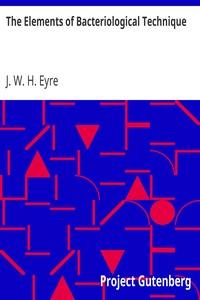Read this ebook for free! No credit card needed, absolutely nothing to pay.
Words: 87915 in 42 pages
This is an ebook sharing website. You can read the uploaded ebooks for free here. No credit cards needed, nothing to pay. If you want to own a digital copy of the ebook, or want to read offline with your favorite ebook-reader, then you can choose to buy and download the ebook.


: A Portrait of Old George Town by Peter Grace Dunlop - Georgetown (Washington D.C.) History; Georgetown (Washington D.C.) Description and travel
pbell and J. Dunlop are very backward in buying with all cash, but as Colonel Deakins is again in cash the price still keeps at a guinea ... from these causes I would not be forward in recommending speculation in the weed, especially as those of good information are holding off.
GEORGE WALKER.
No less a person than General Washington himself wrote in 1791 that George Town ranked as the greatest tobacco market in Maryland, if not in the Union.
Duc de la Rochefoucault Liancourt, traveling in the United States in 1795-'97, says that in 1791 tobacco exports from George Town were 4,864.00. They went even higher in 1792 and 1793, but in 1794 and the following years decreased considerably, which was attributed to two causes: a falling off in tobacco growing, and a diversion of the capital of the merchants to speculation in lots in the Federal City.
A prominent firm in this same business of exporting tobacco was that of Forrest, Stoddert, and Murdock, formed in 1783. Uriah Forrest was born in St. Mary's County, Maryland, in 1756. He served with distinction in the Revolution, was wounded in the Battle of Germantown and lost a leg at the Battle of Brandywine.
He was a delegate in the Continental Congress and served in the third Congress from March 4, 1793 to November 8, 1794, when he resigned. He was commissioned major-general in the Maryland Militia in 1795.
After the war he went to London on business for the Government at his own expense, but returned to enter business with his old friend, Benjamin Stoddert.
Born in Charles County, Maryland, in 1751, Stoddert was of Scottish ancestry, the son of Captain Thomas Stoddert who, while with the Maryland contingent, was killed in Braddock's defeat. Benjamin Stoddert had joined the Continental Army as a captain of cavalry and was in active service until the Battle of Brandywine where, after holding the rank of major, he was so severely wounded as to unfit him for active service. He had seriously considered settling in either Baltimore or Alexandria, urged by friends in each of these cities, but decided that George Town was a better venture.
Colonel John Murdock was already living in George Town where his father, William Murdock, was in business.
Francis Lowndes also had a large warehouse, and John Laird was prosperous in this business, and as time went on, meant a great deal to Georgetown. Colonel Deakins, Jr., was prominent, for on his tomb was inscribed: "George Town, by the blow, has lost her most illustrious patron." He was only fifty-six when he died in 1798. In his youth, he had done surveying with George Washington.
Henry Threlkeld was born in Cumberland County, England, in 1716, came to America and bought an estate of 1,000 acres known as Berleith, bordering on the Potomac. It ran northward, and the present sites of Georgetown College and Convent are on part of this land. He seems to have continued to farm his estate, and died in 1781. His only child, John, became very prominent in all of the affairs of the town.
Joseph Carlton, also in the tobacco business, who died in March, 1812, when only fifty-eight years old, had held the office of postmaster in 1799.
Free books android app tbrJar TBR JAR Read Free books online gutenberg
More posts by @FreeBooks

: The American Missionary — Volume 54 No. 01 January 1900 by Various - Congregational churches Missions Periodicals; Home missions Periodicals The American Missionary


: The Elements of Bacteriological Technique A Laboratory Guide for Medical Dental and Technical Students. Second Edition Rewritten and Enlarged. by Eyre J W H John William Henry - Bacteriology Technique Microbiology






